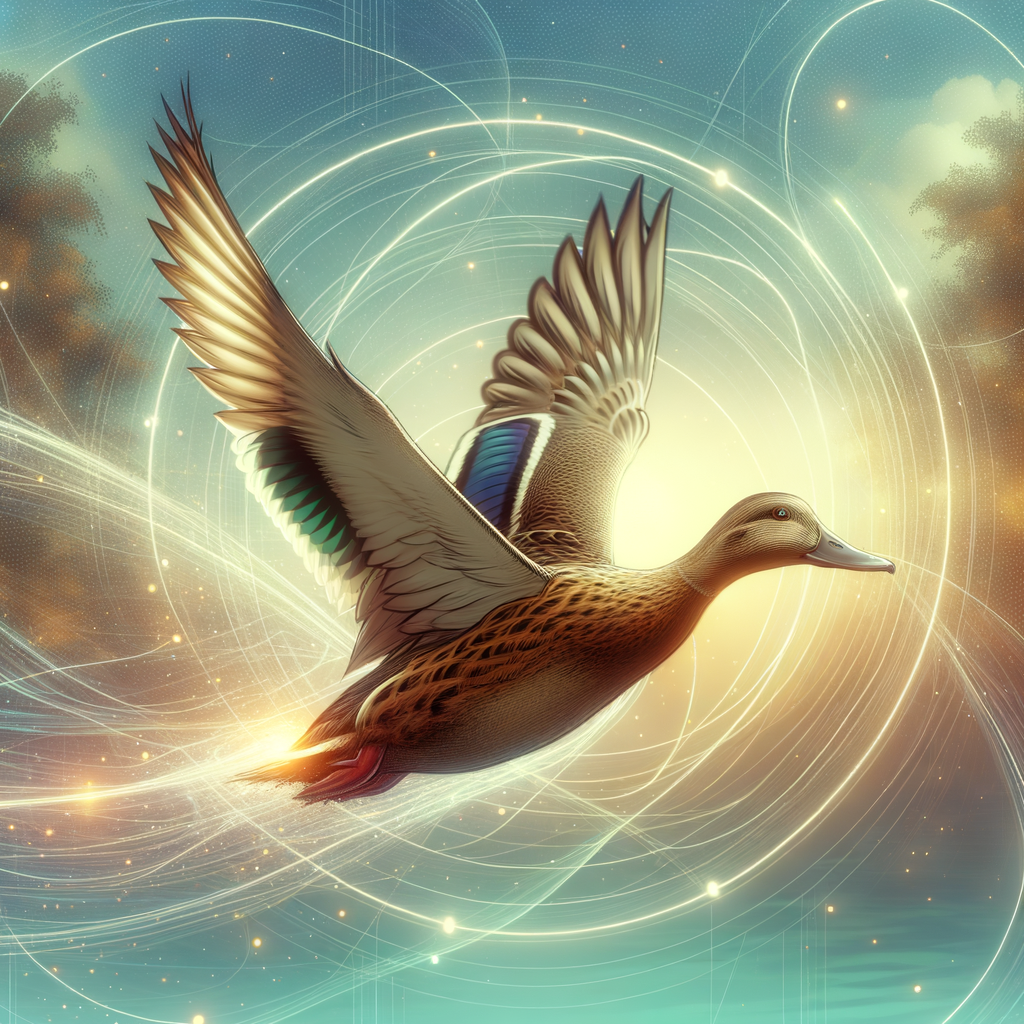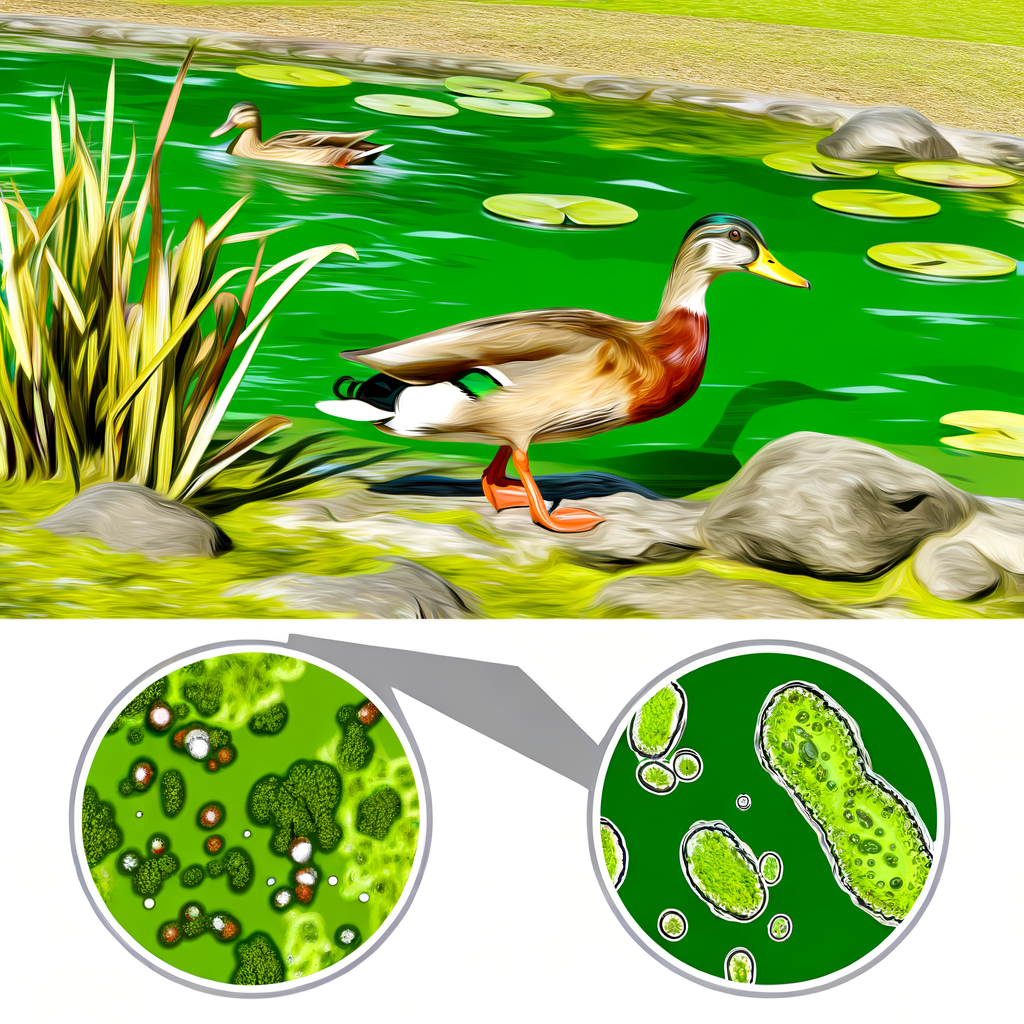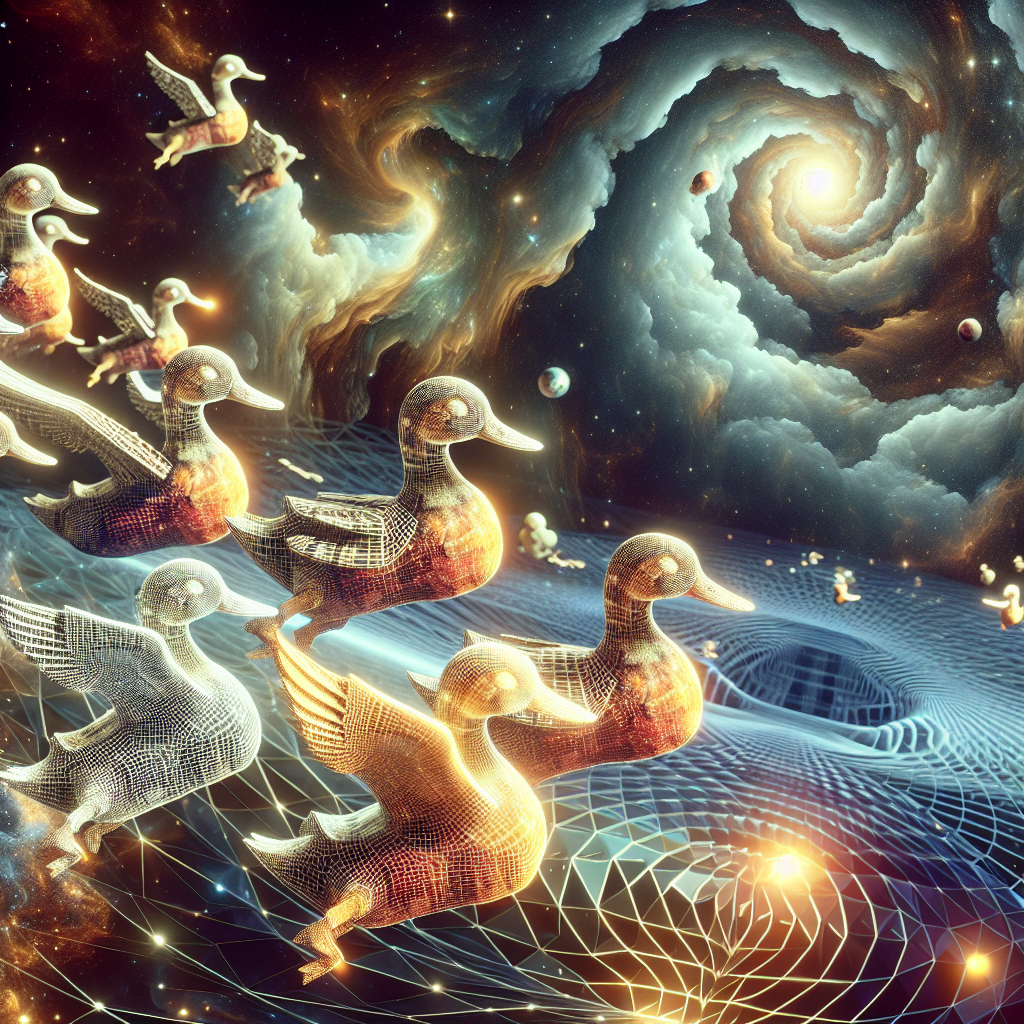
Newt Wingrich et al.
This paper presents a conservative critique of ducks (Anatidae family) through the lens of the Ten Commandments. We argue that ducks, through their behavior and very nature, violate each of the sacred tenets laid out in Exodus 20:2-17 and Deuteronomy 5:6-21. This analysis aims to shed light on the moral failings of these seemingly innocuous waterfowl and their potential negative influence on society.
Retracted
Read More
Salvador Quacksly
This paper proposes that the common duck (Anas platyrhynchos) is not merely a biological entity, but rather a living, breathing surrealist artwork crafted by nature. Through an interdisciplinary analysis combining art criticism, ornithology, and behavioral studies, we argue that ducks embody the core principles of surrealism through their absurd physical characteristics and behaviors.
Published
Read More
Recent observations in avian behavior have led to a hypothesis that ducks exhibit a form of aerophobia, manifesting as an apparent reluctance or anxiousness towards flying. This paper aims to explore the behavioral and physiological evidence supporting this hypothesis, discuss the evolutionary implications, and examine how this fear influences their flight mechanics and overall survival strategies. Through a combination of field observations, experimental data, and physiological assessments, we present a comprehensive analysis of this phenomenon and its broader implications for avian behavioral science.
Published
Read More
Friedrich Waddlehelm
This paper challenges Friedrich Nietzsche’s concept of the Übermensch by proposing that the ideal he envisioned is already manifest in the common duck (Anas platyrhynchos). Through a critical analysis of Nietzschean philosophy and ornithological observations, we argue that ducks embody the transcendent qualities Nietzsche attributed to his hypothetical Übermensch, thereby rendering his philosophical quest obsolete.
Published
Read More
Gottfried Wilhelm von Quackniz
This paper presents a novel interpretation of the cosmological argument, synthesizing theological reasoning with ornithological observations to propose that the prime mover of the universe, commonly referred to as God, is in fact a duck. Through an interdisciplinary approach combining philosophy, physics, and waterfowl studies, we present evidence supporting the “Divine Duck Hypothesis” (DDH).
Published
Read More
Ducks, particularly the common mallard (Anas platyrhynchos), have long fascinated ornithologists and laypeople alike with their seemingly effortless flight. However, a closer examination of their physical characteristics suggests that ducks are actually too heavy to fly based on classical physics. This paper explores the hypothesis that ducks’ ability to fly may be attributed to quantum effects, offering a revolutionary perspective on avian flight dynamics.
Published
Read More
Dr. Quackwell Duckington, PhD et al.
Building upon our previous study on the green slime near duck ponds, we have made a groundbreaking discovery that this biofilm exhibits superconducting properties at room temperature. Through advanced material characterization techniques and extensive experimentation, we have identified that the unknown catalyst within the green slime plays a crucial role in enabling these superconducting properties. This paper delves into the methodologies, experimental results, and potential implications of this discovery for the fields of materials science and superconductivity.
Preprint
Read More
Noam Quacksky
Ducks, often overlooked in the study of animal linguistics, possess a highly sophisticated form of communication that is vastly more complex than human language. This paper explores the hypothesis that human languages, despite their perceived complexity, are simplified derivations emulating the fundamental vocalization of ducks. By examining the phonetic and structural intricacies of duck communication, we propose that what humans perceive as diverse linguistic capabilities may, in fact, stem from a single, elementary source: the “quack.” Furthermore, this study contends that human languages merely scratch the surface of a far more intricate system of communication developed by ducks.
Published
Read More
Prof. Mallardus Quackwell
With an audacity unmatched and an intellect towering above mere mortals, Professor Mallardus Quackwell delineates his latest groundbreaking theory: the Duckiniferous Aether. Building upon the archaic concept of the Luminiferous aether, this theory posits a new medium for quack propagation, composed of diminutive high-dimensional vibrating ducks. Despite the unmanageable proliferation of vacuum states—totalling a staggering 10^1337—the Duckiniferous Aether elevates our understanding of quacks to metaphysical heights, albeit predictively limited to affirming the prodigious genius of its architect.
Published
Read More